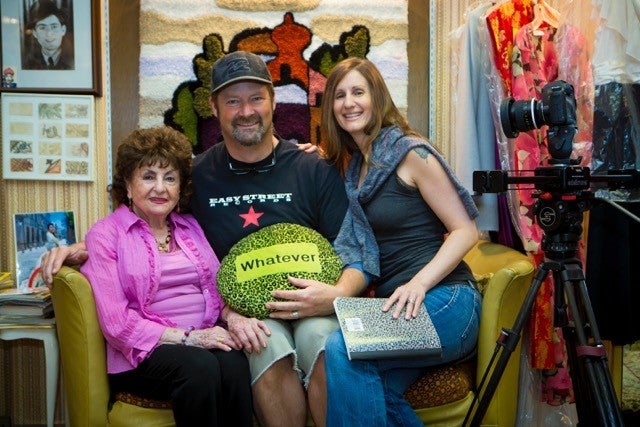Have you ever heard a story that moved you to act? Your heart races, goosebumps rise on your neck, and before you know it you’re googling “How to…” and almost intuitively Google auto fills in the rest “make this world a better place”. The power of story comes to life through film and film is the medium through which Leah Warshawski is creating social impact globally. Leah demonstrates through her work that, “stories have the power to change the world if the world chooses to listen”. Gain insight on Leah’s journey as a social impact leader at her production company Inflatable Film and learn how the Executive Program in Social Impact Strategy provided support on her journey as a change agent.
How would you describe intimate storytelling? Why is it important for these stories to be heard?
That’s a great question and the word “intimate” has certainly become a documentary buzz-word lately. To me, “intimate storytelling” means getting your hands dirty – doing the exhausting and uncomfortable work required to tell stories over time; having access or a unique point of view based on your relationship to the story. Intimate stories are the underdogs, the quiet moments, the punch-you-in-the-gut stories that change your mind and make you feel like you’ve just learned a family secret that nobody else knows. These stories do have the power to change the world if the world chooses to listen. Unfortunately, many intimate stories have an uphill battle to make it to the mainstream market, so a lot of the work I do as a producer and impact producer involves making sure these stories are seen by the largest audience possible.
How can the film industry’s unique platform be used as a tool to create social impact and advance the public good?
Good films have the power to create emotions that convert passive viewers to active do-ers.
Have you ever seen a film that you’re still thinking about a week later? Or a film that changes your mind or gives you a new perspective [or]education on an important issue? How many times have you been inspired enough by a film to do more research on the topic afterwards, or get involved in the film’s impact campaign?
In the documentary world we talk about “social impact” all the time – how will our films actually change peoples’ behavior and how do we measure that? My husband and I watched The Gamechangers last week and we vowed not to eat meat again. After seeing the documentary Blackfish I promised never to go to another zoo or sea-life park and signed numerous petitions and change.org campaigns. When a film sparks emotion, and that emotion turns into passion, anything is possible. Imagine what can happen on a global scale if enough people decide to do something to advance the public good?
Despite all of the digital platforms available from your couch, I’m still a big advocate of seeing films in a theater or community setting. Something powerful happens when you experience a film with community versus on your own, and we see it over and over again with documentary audiences. I call it “group therapy”. Many films cause you to think about your own life differently and we have many people come up after a film and tell us how the film changed their lives. People in the audience become friends with each other and create human bonds / shared emotions that have collective impact beyond what’s possible in the digital realm.


